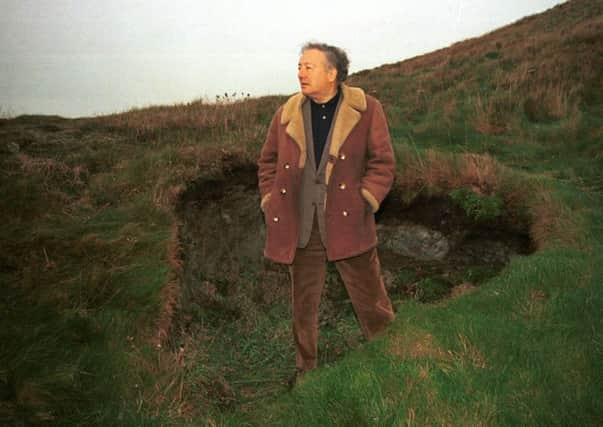Obituary: Robin Hardy, author and director of The Wicker Man


Robin Hardy had one major claim to fame: he directed the cult movie The Wicker Man starring Sir Christopher Lee and Edward Woodward. It was Hardy’s only major film but has claims to be a cinematic masterpiece.
The 1973 film, based on a script by Anthony Shaffer, told the story of a puritanical police sergeant, played by Woodward, sent to search for a missing girl on the fictional island of Summerisle. The community is soaked in weird traditions and pagan worship.
Advertisement
Hide AdAdvertisement
Hide AdThe film was acclaimed for its sinister storyline and is acknowledged as a classic of the mystery horror genre. One film magazine named it the sixth greatest British film of all time. A clip of the fearsome finale was included in the opening ceremony of the London Olympics in 2012.
Hardy said the writing period was long and tortuous. “Tony and I thought it would be fun to go back to the religion on which all this hokey witchcraft stuff was based – the old religion – and recreate a contemporary society that was pre-Christian. We wondered why it was that they always centred on pentacles, garlic, stakes in hearts and all those other things to do with black magic.”
The film has strong Scottish connections and much of it was filmed off the west coast – the opening sequence features the Isle of Skye with spectacular views of Quiraing. Hardy made almost the entire film in Dumfries-shire – including Gatehouse of Fleet, Newton Stewart and Kircudbright (along with a few scenes in Creetown and Plockton in Ross-shire). Hardy often included local people in the crowd scenes, especially on the Isle of Whithorn and at Culzean Castle.
The finale is now legendary. The burning of The Wicker Man occurred at Burrow Head on the Machars peninsula and proved controversial. It was rumoured that some animals died inside The Wicker Man at the burning ceremony. Hardy denied this and stated categorically: “Great care was taken to ensure that the animals were in no danger of being hurt during this scene and they were not inside the Wicker Man when it was set on fire.”
Shaffer (brother of Peter, who wrote Amadeus and Equus) had already written the hit play Sleuth when he brought The Wicker Man script to Hardy. The two wrote and rewrote the film script and settled on the idea of a devoutly Christian police officer investigating a mysterious disappearance on a remote island inhabited by sinister pagans.
Even after filming was completed some questions remained obscure. In Allan Brown’s book Inside The Wicker Man, he details the movie’s social influence and at the 2010 Edinburgh Book Fair spoke of how the film “contrasted urban and rural people and mainland and islanders”.
Lee championed the film for the rest of his life calling it “Brilliant. Simply brilliant.” After he had first seen the film he said to Hardy: “There are 15 minutes missing”, adding: “Somewhere there are cans of film of outtakes.” The saga has rolled on: Rod Stewart wanted to ban the scenes in which his then girlfriend (Britt Ekland) was nude – although it is alleged that the bottom that caused Stewart’s concern was not actually Ekland’s.
It is Hardy’s chilling direction and his inspired use of the camera that lit up the fearsome ending. Shaffer’s griping screenplay is bold and compares Christianity and paganism; yet it is Hardy’s ability to retain the cliff-hanger and keeps the audience guessing.
Advertisement
Hide AdAdvertisement
Hide AdDespite an initial rather lacklustre reception the movie’s influence has been widespread. One critic called The Wicker Man “The Citizen Kane of horror movies”.
Robin St Clair Rimington Hardy studied in Paris and began his directorial career in Canada and the US mainly making television dramas. In the 1960s, he returned to London and got involved in several projects with Shaffer and making adverts. After The Wicker Man he made in Ireland The Fantasist (1986) which he also wrote. It starred Christopher Cazenove and Timothy Bottoms and dealt with a serial killer who makes phone calls.
Hardy directed The Wicker Tree (2011), a “spiritual sequel” adapted from his own novel Cowboys for Christ set in the Borders and was much influenced by the Border Ridings.
In 2009 there was a play of The Wicker Man at the Edinburgh Fringe with which Hardy was associated and in 2011 the National Theatre of Scotland produced a musical version of the movie.
The film also lent its name to a music festival, which has run in Dumfries-shire for more than a decade. It climaxes with the burning of a giant Wickerman sculpture.
He is survived by his fifth wife, Victoria Webster, and his eight children, including the film-maker Justin Hardy.
Alasdair Steven